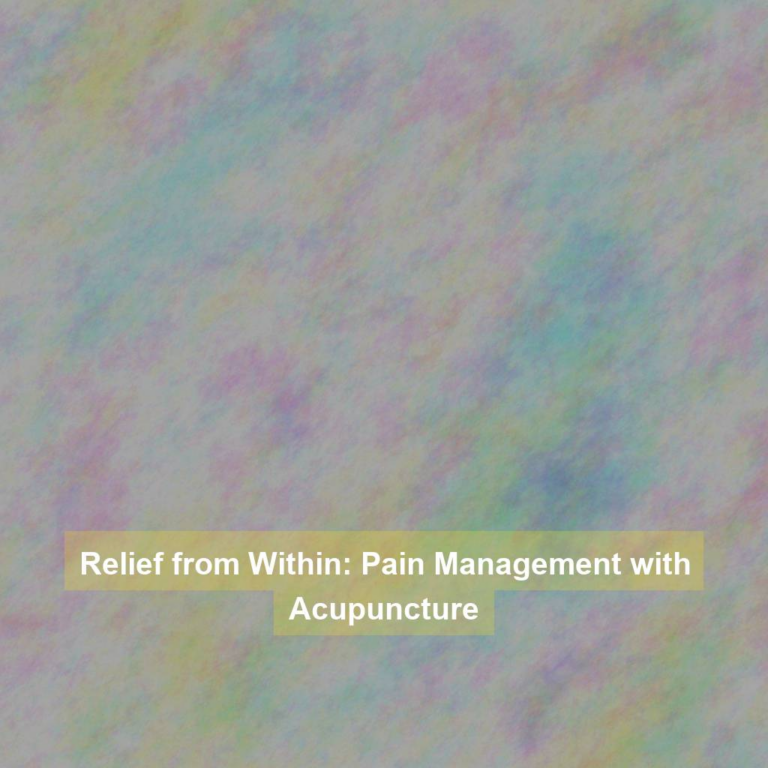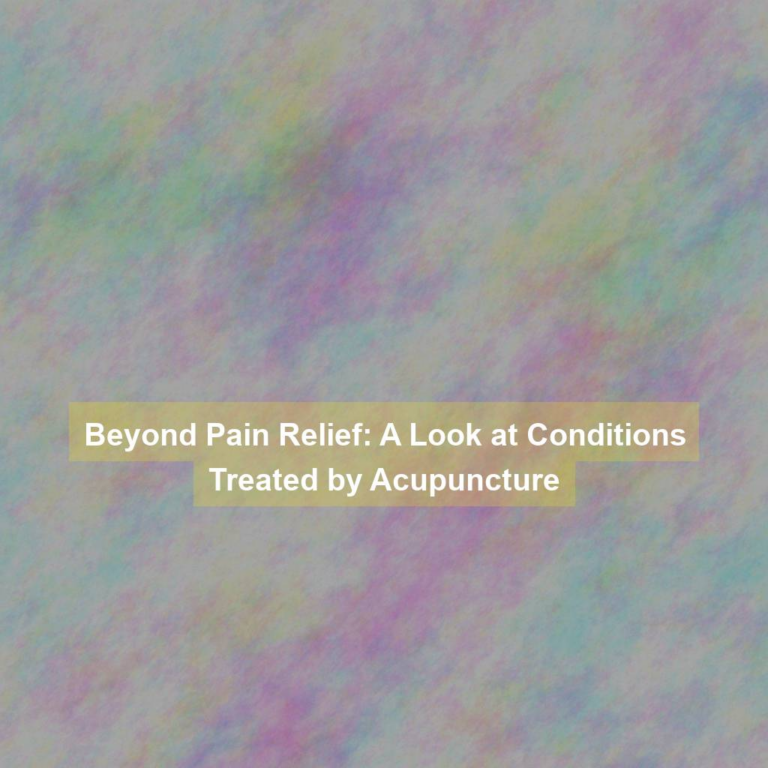Imagine a tightly wound spring slowly unwinding, releasing the tension that has built up over time.
Now, think about how you can achieve a similar sense of calm and relief from stress and anxiety through the ancient practice of acupuncture.
You may be curious about how tiny needles can have such a profound effect on your emotional well-being, and the science behind it is truly fascinating.
As you explore the potential of acupuncture treatments for easing tensions, you’ll discover a holistic approach to managing stress and anxiety that could change your life.
Understanding Acupuncture and Stress
Understanding how acupuncture can alleviate stress involves recognizing the specific pressure points targeted during the treatment. Acupuncture aims to restore the balance of energy flow in your body, known as qi, through the insertion of thin needles into specific points.
For stress relief, acupuncturists focus on points such as the Shen Men, which translates to ‘Spirit Gate,’ aiming to soothe your mind and alleviate anxiety. The Pericardium 6 point, located on the inside of the wrist, is also targeted to reduce tension and promote relaxation.
By stimulating these pressure points, acupuncture can help regulate the body’s stress response and promote a sense of calm. This ancient practice not only addresses the physical symptoms of stress but also targets the emotional and mental aspects, providing a holistic approach to stress relief.
Understanding how acupuncture impacts stress can empower you to take charge of your well-being and explore this natural alternative for managing daily stressors.
How Acupuncture Alleviates Anxiety
To further explore the benefits of acupuncture in managing stress and anxiety, consider how the specific pressure points targeted during treatment contribute to alleviating anxiety symptoms. Acupuncture works by stimulating certain points on the body, which in turn triggers the release of endorphins, the body’s natural painkillers. These endorphins not only help in reducing physical pain but also have a calming and relaxing effect on the mind, which can significantly alleviate anxiety.
Additionally, acupuncture helps regulate the body’s serotonin levels, a neurotransmitter associated with mood regulation. By doing so, it can help improve mood and reduce anxiety. Furthermore, acupuncture has been found to lower the levels of cortisol, the stress hormone, in the body. High levels of cortisol are often linked to increased anxiety and stress, so reducing its levels can have a positive impact on anxiety symptoms.
The Science Behind Acupuncture for Stress
Stimulating specific pressure points during acupuncture treatments activates the body’s natural painkillers, triggering the release of endorphins, which can effectively alleviate stress and anxiety symptoms. When the fine needles are inserted into these strategic points, it sends signals to the brain to release these endorphins, which are neurotransmitters that act as natural pain relievers. This process helps to reduce the perception of stress and anxiety, promoting a sense of calm and relaxation.
Furthermore, acupuncture has been shown to regulate the autonomic nervous system, which is responsible for the body’s stress response. By stimulating certain acupuncture points, the sympathetic nervous system, responsible for the ‘fight or flight’ response, can be calmed, while the parasympathetic nervous system, responsible for the body’s rest and digest functions, can be activated. This balance helps to mitigate the physiological effects of stress on the body.
Studies have also indicated that acupuncture may lower levels of cortisol, the hormone associated with stress, while increasing the production of serotonin, a neurotransmitter linked to mood regulation. These scientific mechanisms provide insight into how acupuncture can effectively address stress and anxiety.
Acupuncture Points for Relaxation
The previous discussion on the science behind acupuncture for stress highlights how specific acupuncture points can effectively alleviate stress and anxiety symptoms. When it comes to relaxation, there are several key acupuncture points that practitioners may target to help ease your stress and promote a sense of calm.
One of the most commonly used points for relaxation is known as Shenmen, which translates to ‘Spirit Gate.’ Stimulating this point is believed to have a calming effect on the mind and can help reduce feelings of anxiety and nervousness.
Another important point for relaxation is the Yintang, located between the eyebrows. This point is often referred to as the ‘Third Eye’ and is thought to help relieve stress, promote relaxation, and clear the mind.
Additionally, the Heart 7 (Shenmen) acupuncture point, located on the wrist, is associated with reducing anxiety and promoting a sense of tranquility. By targeting these specific acupuncture points, practitioners aim to help you achieve a state of deep relaxation and alleviate the symptoms of stress and anxiety.
Integrating Acupuncture Into Your Wellness Routine
Consider incorporating acupuncture into your wellness routine to effectively manage stress and anxiety. Integrating acupuncture can be a valuable addition to your existing self-care practices. Scheduling regular acupuncture sessions can provide consistent support for your overall well-being. By making it a part of your routine, you can proactively address stress and anxiety before they become overwhelming.
When integrating acupuncture into your wellness routine, it’s important to communicate openly with your acupuncturist about your specific stress and anxiety triggers. This will allow them to tailor the treatment to best address your individual needs. Additionally, consider incorporating other wellness activities such as yoga, meditation, or exercise to complement the effects of acupuncture. Creating a holistic approach to managing stress and anxiety can amplify the benefits of acupuncture treatments.
Incorporating acupuncture into your wellness routine may require some adjustments, but the potential impact on your overall well-being can be significant. As you explore this option, keep an open mind and be patient with the process. Over time, you may find that acupuncture becomes an essential component of your stress and anxiety management toolkit.
Conclusion
So, if stress and anxiety are getting the best of you, consider giving acupuncture a try. With its ability to promote relaxation and reduce tension, acupuncture can be a valuable tool in managing your overall wellness.
Whether as a standalone treatment or in combination with other therapies, acupuncture has the potential to provide relief and support for your mental and emotional well-being.
Take the first step towards easing your tensions and give acupuncture a chance today.







